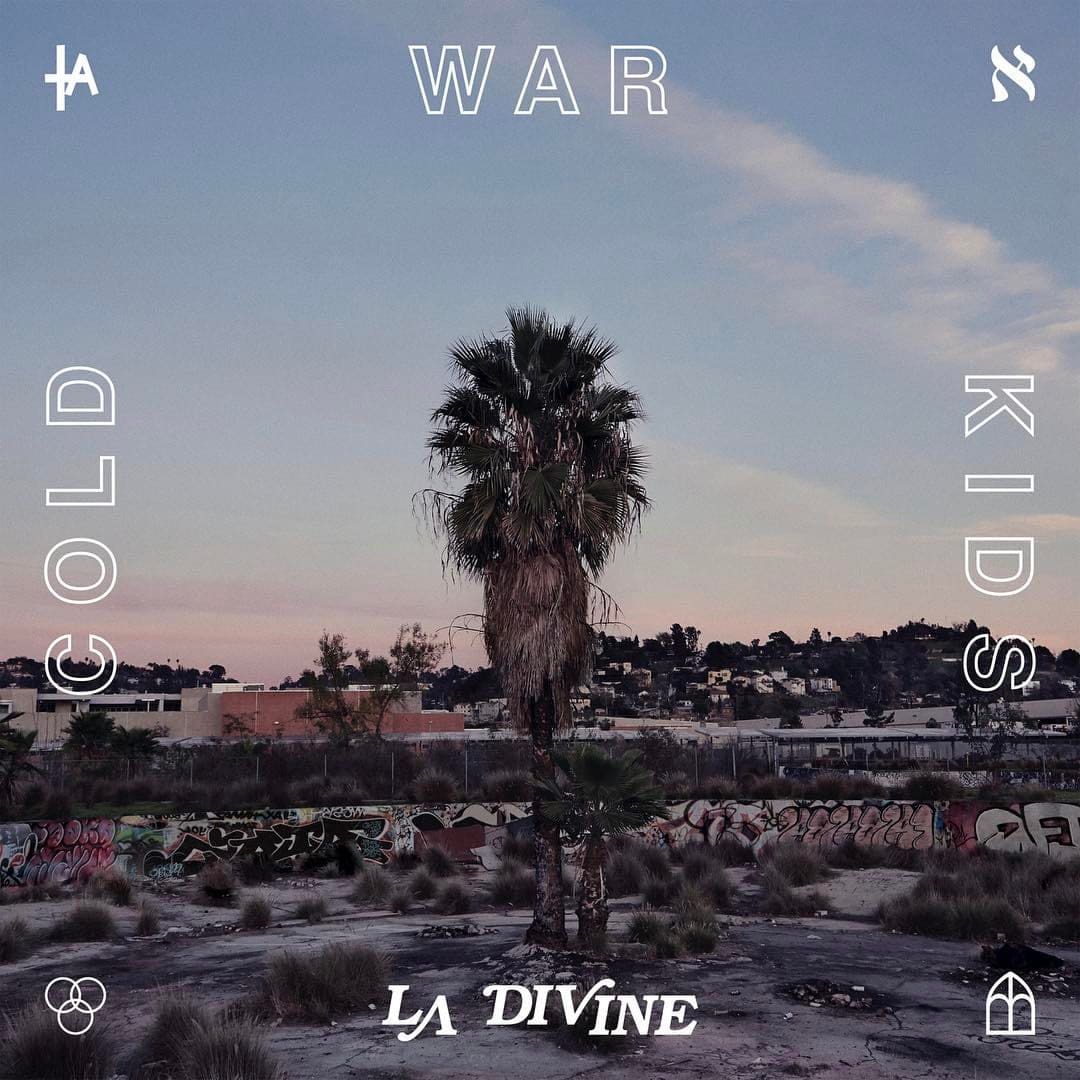Written by Kat Manos
Sometimes I suspect there are only two people in the world: those who think Cold War Kids are one of the most talented and criminally underrated indie rock bands out there today, and those who’ve never heard of them. With LA DIVINE, their 6th studio album – and first on a major label – Cold War Kids aim to reach those people in the latter group with a joyful concept album devoted to the city of angels. And we should only hope that their hard work pays off.
For the hardcore fans of Cold War Kids, it’s a bit unbelievable to realize that their excellent and fully-realized debut album Robbers & Cowards came out just 11 years ago. That debut, like the four albums that followed, were released on indie label Downtown Records to mostly positive reviews and solid tours. Yet, it wasn’t until early 2015 that the band received their first #1 hit on the Billboard Alternative Charts with the single “First” from 2014’s Hold My Home. So, needless to say, expectations for LA DIVINE – now out on Capitol Records – have been high. Luckily, with a larger audience now on the line, Cold War Kids meet those expectations and more.
LA DIVINE is unique in that it’s both a love letter to Los Angeles and not about Los Angeles at all. The lead single and first track on the album, “Love Is Mystical” is pure, unadulterated Cold War Kids: infectious harmonies, bluesy rhythms, a resonate piano hook reminiscent of their early classic “Saint John,” and a catchy chorus ripe with lyrical soul. Much like Hold My Home, there are anywhere from four to seven conceivable singles on the record that are not only radio-friendly, but the type of songs created specifically to play in your car with the windows rolled down. Cuts like “Can We Hang On?,” “Restless,” and “No Reason To Run” feature gutsy, singalong choruses powerful enough to fill arenas, and stomp-clap verses evocative of The Killers’ early work, Coldplay before they devolved entirely to pop, and The Lumineers if they had more substance.
The most obvious call-outs to LA pop up in the short, interstitial tracks between the hits; “LA River” is a minute-long, distorted and echo-y number that paints the LA River as “familiar” while “Cameras Always On” is a mere 30-second clip of lead singer Nathan Willett playing piano and singing into his iPhone, “I can’t live in my mind / But I can’t be everything to you at the same time / I want to be famous in your eyes / But the camera’s always on.”
“Wilshire Protest” is another off-the-cuff reflection written after an actual protest that Willett attended in the wake of the election. His words are raw, well-meaning, and one of the most obvious instances that this album focuses on the band’s current home of LA, but is also very much about larger issues happening in the world.
When LA DIVINE isn’t focusing on positive forces like the mysticism of love and holding on, it criticizes modernities of the world like getting “trapped on the freeway,” texting when running late, being “detached from violence,” and “staring in disbelief” at the news on phones. The sentiments aren’t new, but they come across as genuine and authentic.
The two final tracks on LA DIVINE – “Part Of The Night” and “Free To Breathe” – distil that positivity and negativity into the album’s two forces: the intimacy and vulnerability of home, and the troubles of the outside world. “Part Of The Night” toys with darker vulnerability, backed by notable and soulful rhythms led by drummer Joe Plummer and the always-phenomenal Matt Maust on bass. Heartfelt harmonies remind us of necessary human connections at home: “We are a part of the night / You’ve seen me through my darkest times / I feel you when I close my eyes.” Seamlessly, the song turns into “Free To Breathe,” a gentle closer that takes a different, questioning approach. When Willett sings, “Why should I believe everything will be alright […] / It’s on our shoulders to set the world right,” we feel the weight of the times on him. The album closes with the portentous words, “World is changing / Can you feel the tension? / If you’re not angry, then you must not be listening.”
Ultimately, Cold War Kids’ LA DIVINE paints a joyful, breezy picture of home with bold choruses and bombastic sounds crafted to fill arenas, while still remaining authentically critical of the changing world. If this is the type of creative work the band can produce in the wake of success, I think it’s safe to say more and more people will start to recognize Cold War Kids’ brilliance.
Rating: 8/10


